By clicking a retailer link you consent to third-party cookies that track your onward journey. This enables W? to receive an affiliate commission if you make a purchase, which supports our mission to be the UK's consumer champion.
Best whitening toothpastes: our expert picks from independent testing
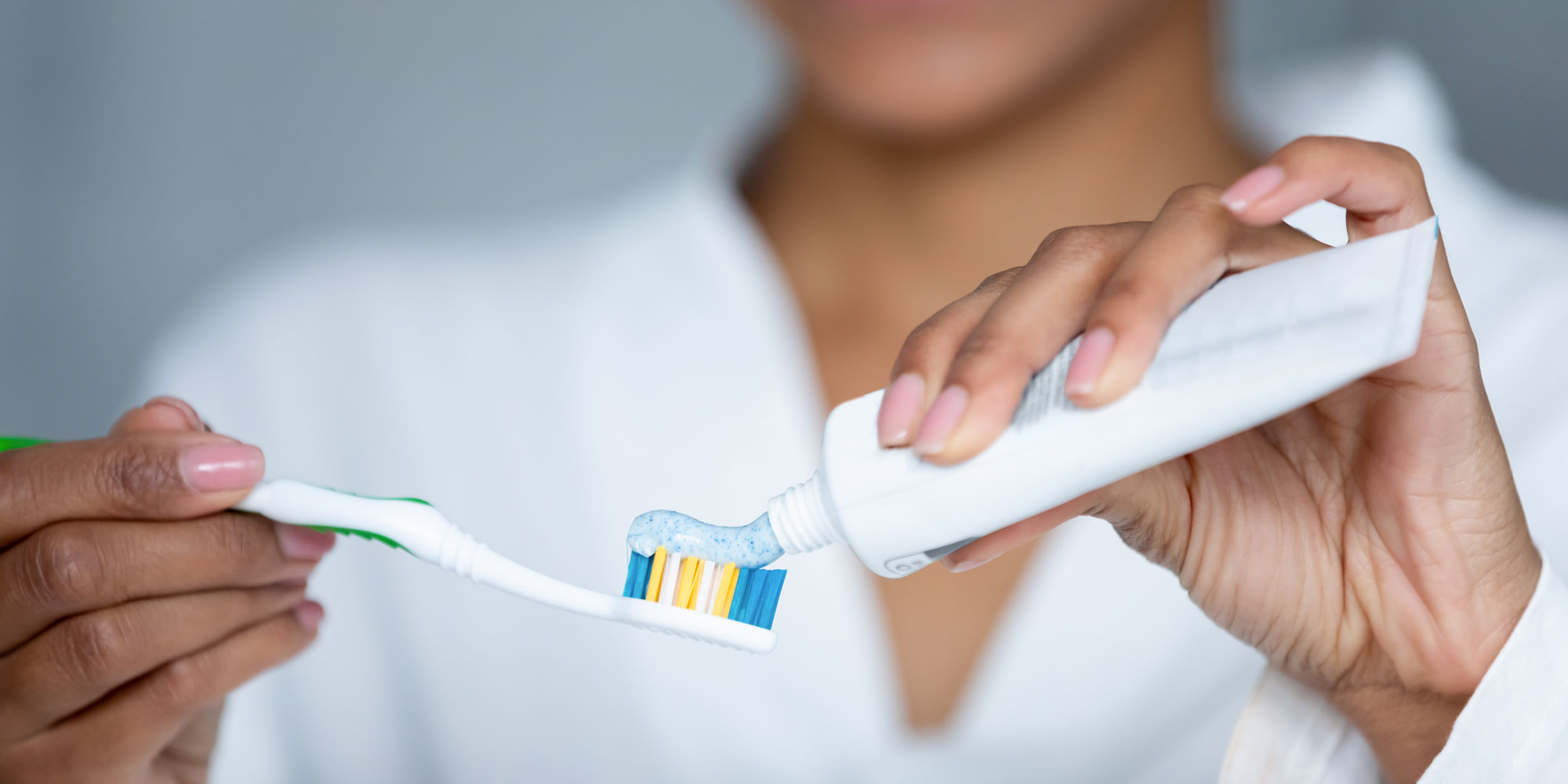
We tested 10 popular whitening toothpastes that claim to be appropriate for daily use on whitening abilities, plaque removal, flavour, texture and more.
We checked the whitening toothpastes claims to polish teeth and remove stains, as well as to see how well they clean plaque and prevent cavities.
This is crucial because plaque is a sticky film of bacteria that forms on teeth and can lead to gum disease and tooth discolouration if not properly managed. Cavities are holes in your teeth caused by decay. They can cause pain and sensitivity, and may require expensive repairs like fillings, root canals or crowns.
Find out which toothpastes impressed us and get our recommendation.
How our tests find you the best
We've tested 10 toothpastes
We assess toothpastes from big brands and at different price points to ensure you can find the best value and performance.
Cleaning performance
We'll tell you which toothpastes excel at plaque removal and which ones barely scrub away last night's sins.
Whitening
We assess the shade shift, so you'll know exactly which toothpaste works the hardest to remove stubborn external stains.
We also test...
Flavour, texture, foaming abilities, how fresh your breath will feel after brushing, sensation in the mouth, and more.
The toothpastes we tested
The biggest brands and the most popular toothpastes are listed below.
Only logged-in Which? members can view the toothpaste test results.
Join Which? to get instant access to our test results and Best Buy recommendations.
| Toothpaste | Price | Score | Cleaning | Whitening | User rating |
|---|---|---|---|---|---|
Sign up to reveal Get instant access to this and all our scores and recommendations Unlock tableDigital £8.99 per month, cancel any time. Already a member? Log in | 81% | ||||
| 79% | |||||
| 78% | |||||
| 75% | |||||
| 71% | |||||
| 69% | |||||
| 69% | |||||
| 69% | |||||
| 67% | |||||
| 65% |
Sign up to reveal
Get instant access to this and all our scores and recommendations
Unlock tableDigital £8.99 per month, cancel any time.
Already a member? Log in
Date tested: September 2025. Page last checked: October 2025. We're not able to show every retailer and cheaper prices may be available.
All the toothpastes we tested are listed in alphabetical order below.
Only logged-in Which? members can view the best toothpastes from our tests.
Join Which? to get instant access to our test results and Best Buy recommendations below.
Arm & Hammer Advanced White Pro Baking Soda Toothpaste
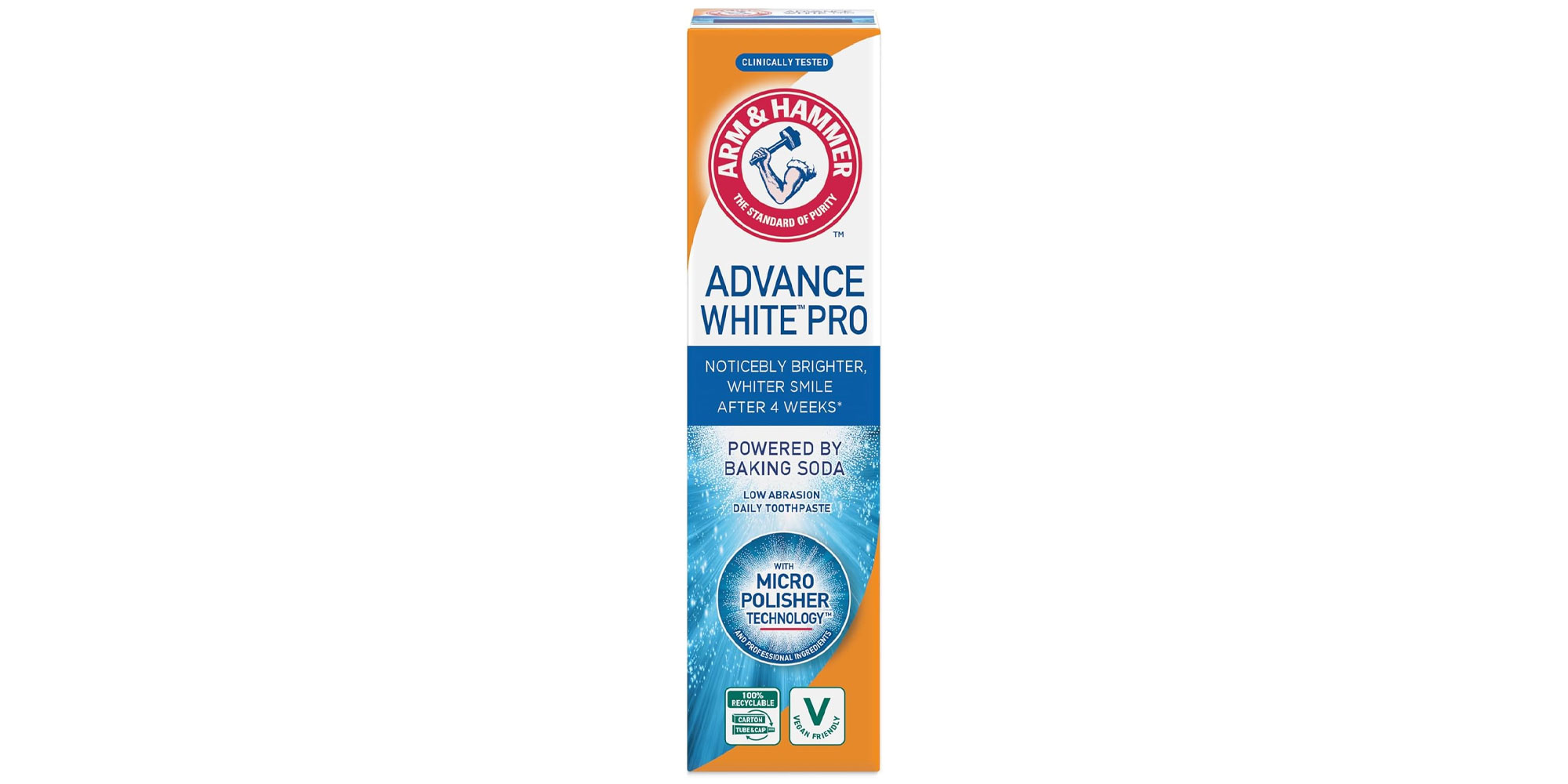
Most recently tested September 2025
Need to know 75ml tube
Colgate Max White Ultimate Radiance Toothpaste
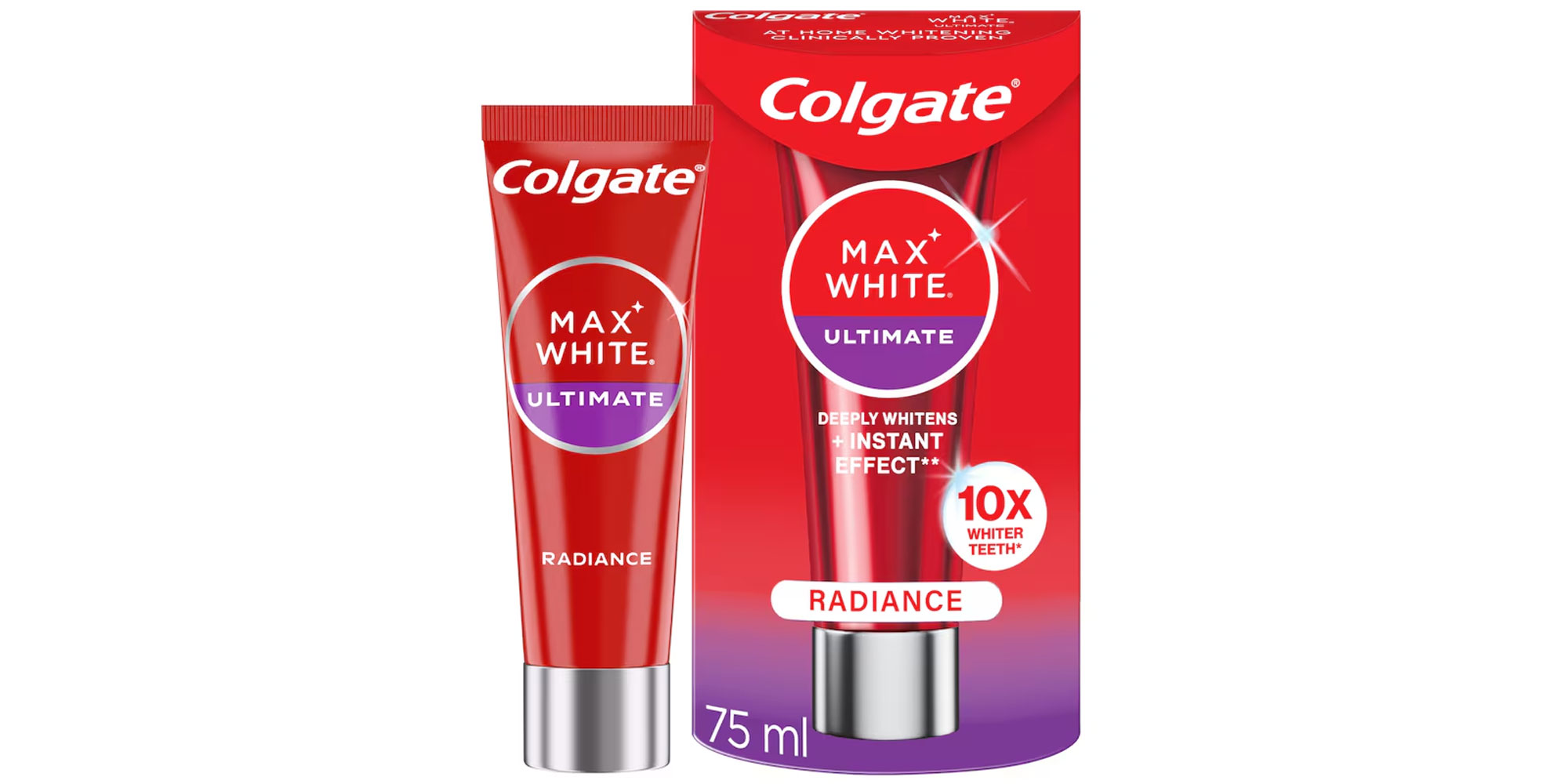
Most recently tested September 2025
Need to know 75ml tube
Colgate Triple Action Xtra White Toothpaste
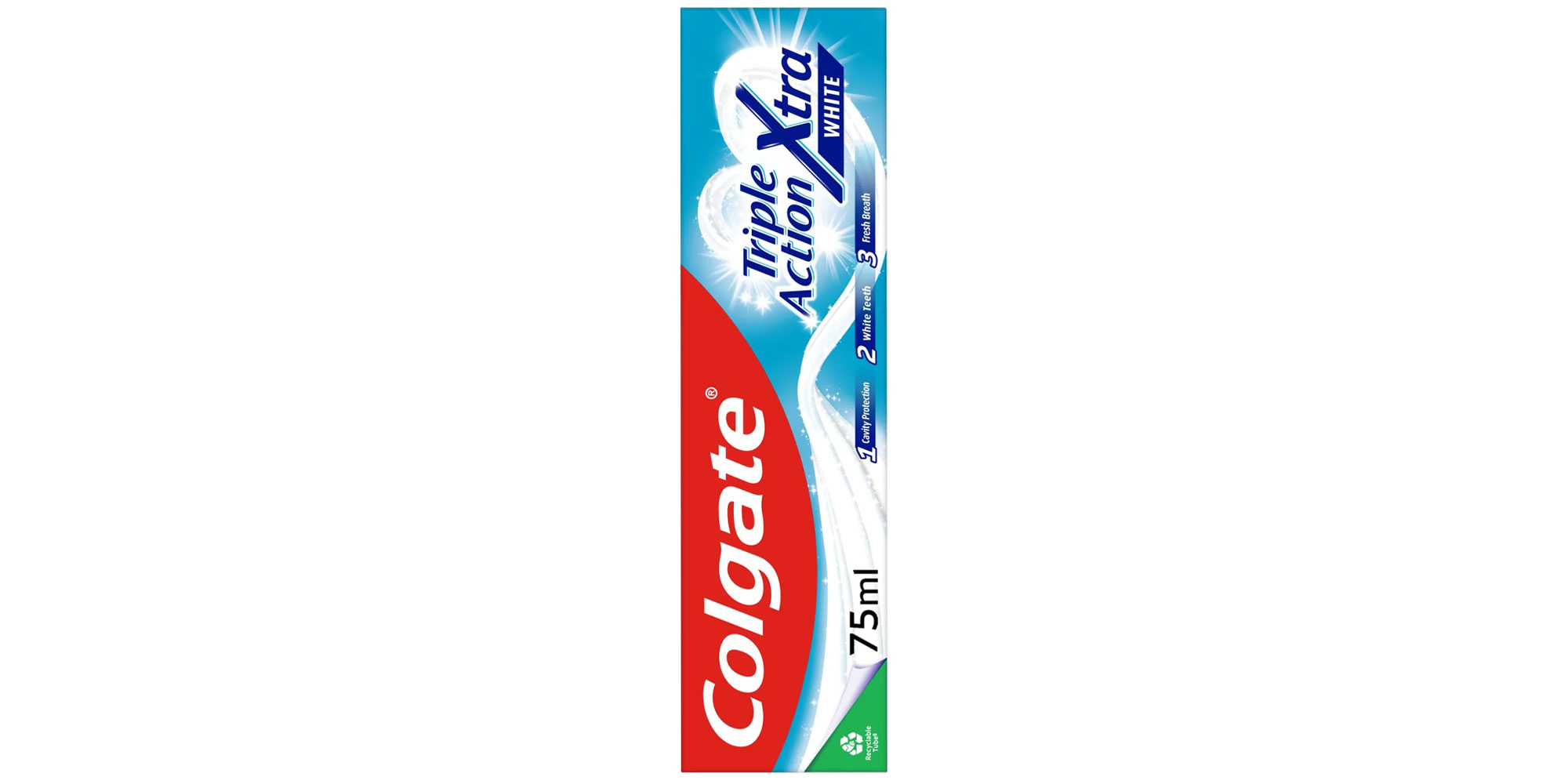
Most recently tested September 2025
Need to know 75ml tube
Corsodyl Complete Protection Gum Care Whitening Toothpaste
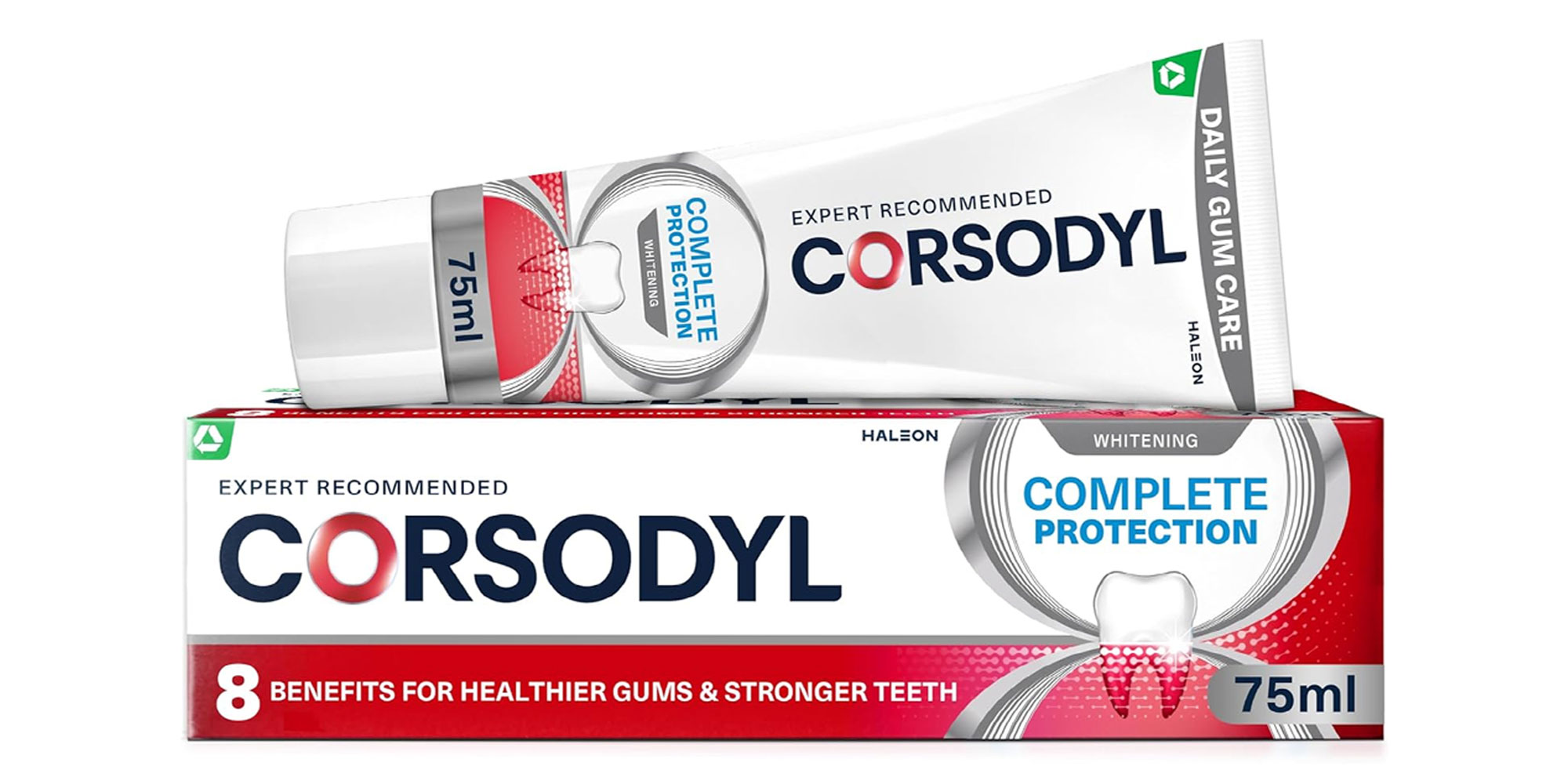
Need to know 75ml tube
Euthymol Whitening Toothpaste
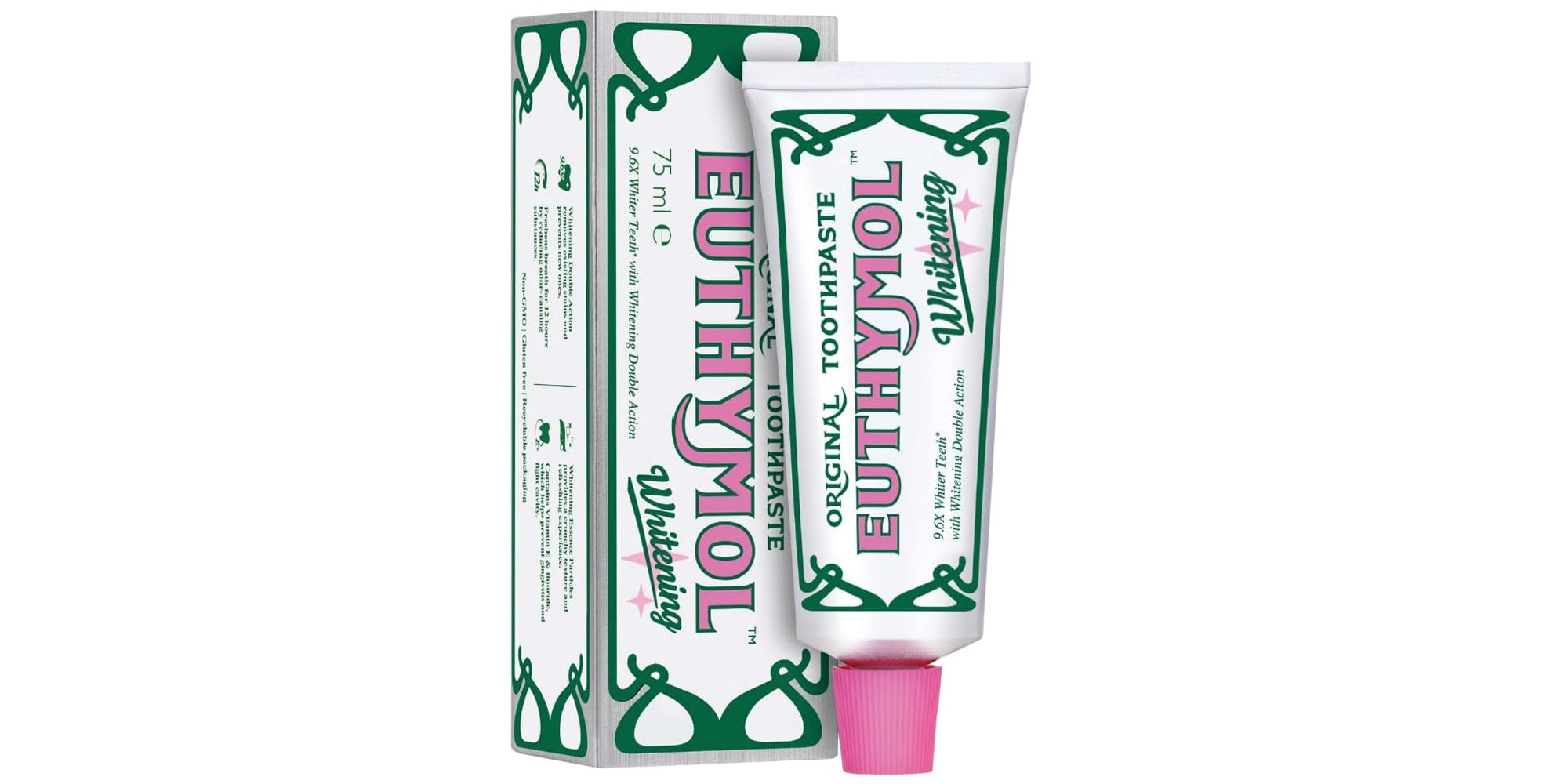
Available from Superdrug (£2.99)
Most recently tested September 2025
Need to know 75ml tube
Give your teeth a through clean with the best electric toothbrushes and best water flossers
Marvis Whitening Toothpaste
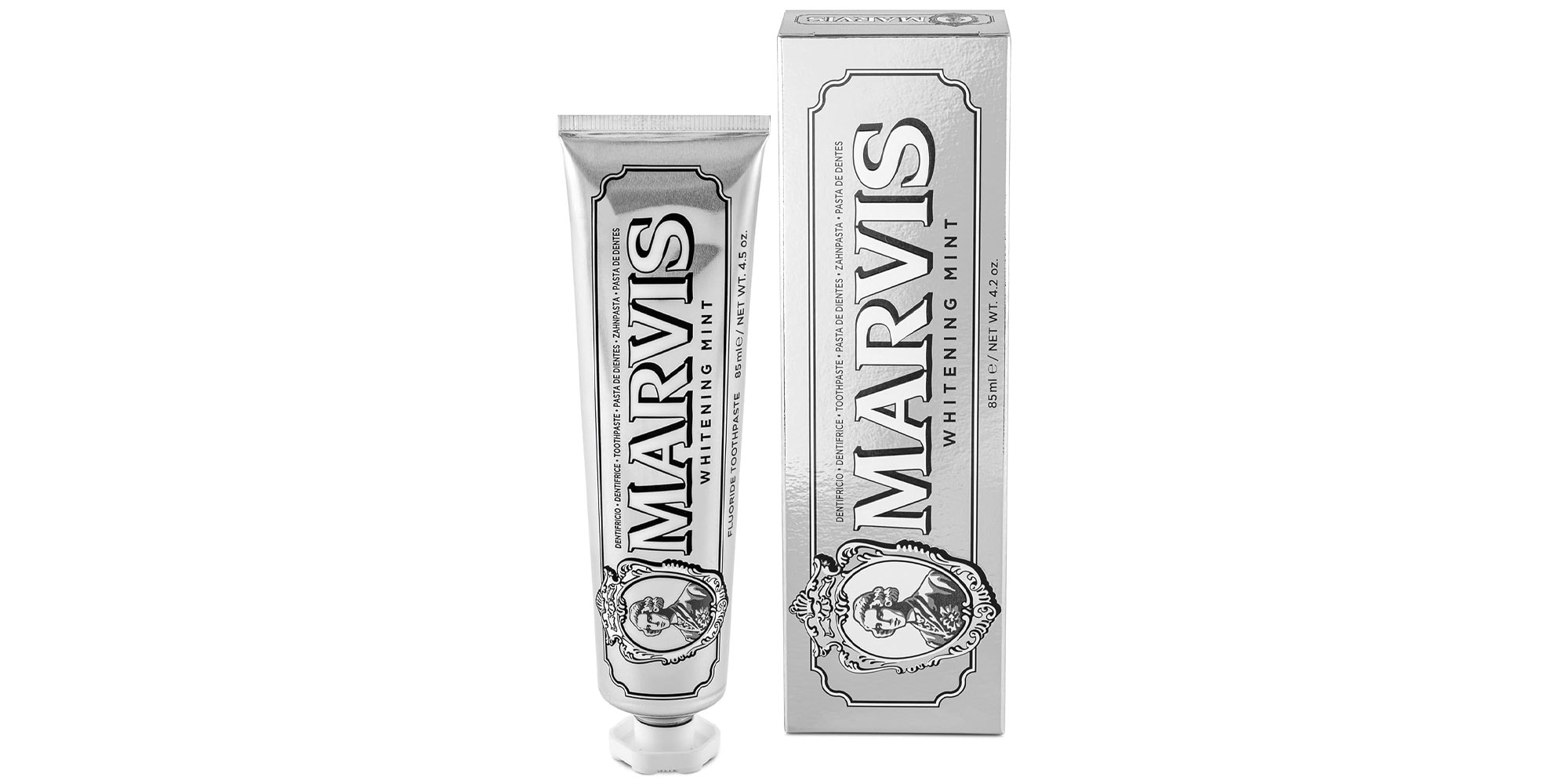
Need to know 85ml tube
Oral B 3D White Luxe Perfection Toothpaste
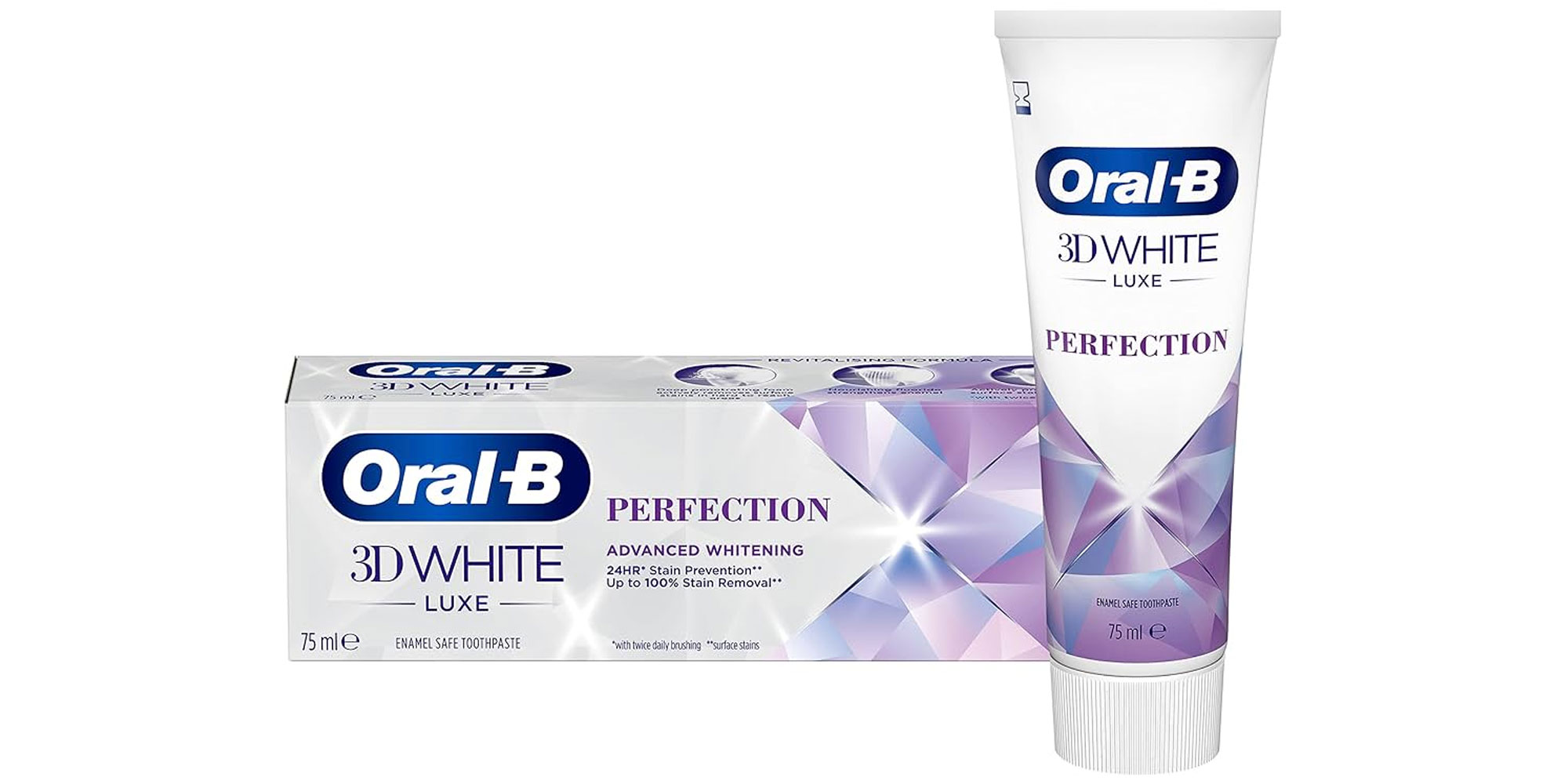
Need to know 75ml tube
Oral B Pro 3D White Clinical Bright Brilliance Toothpaste
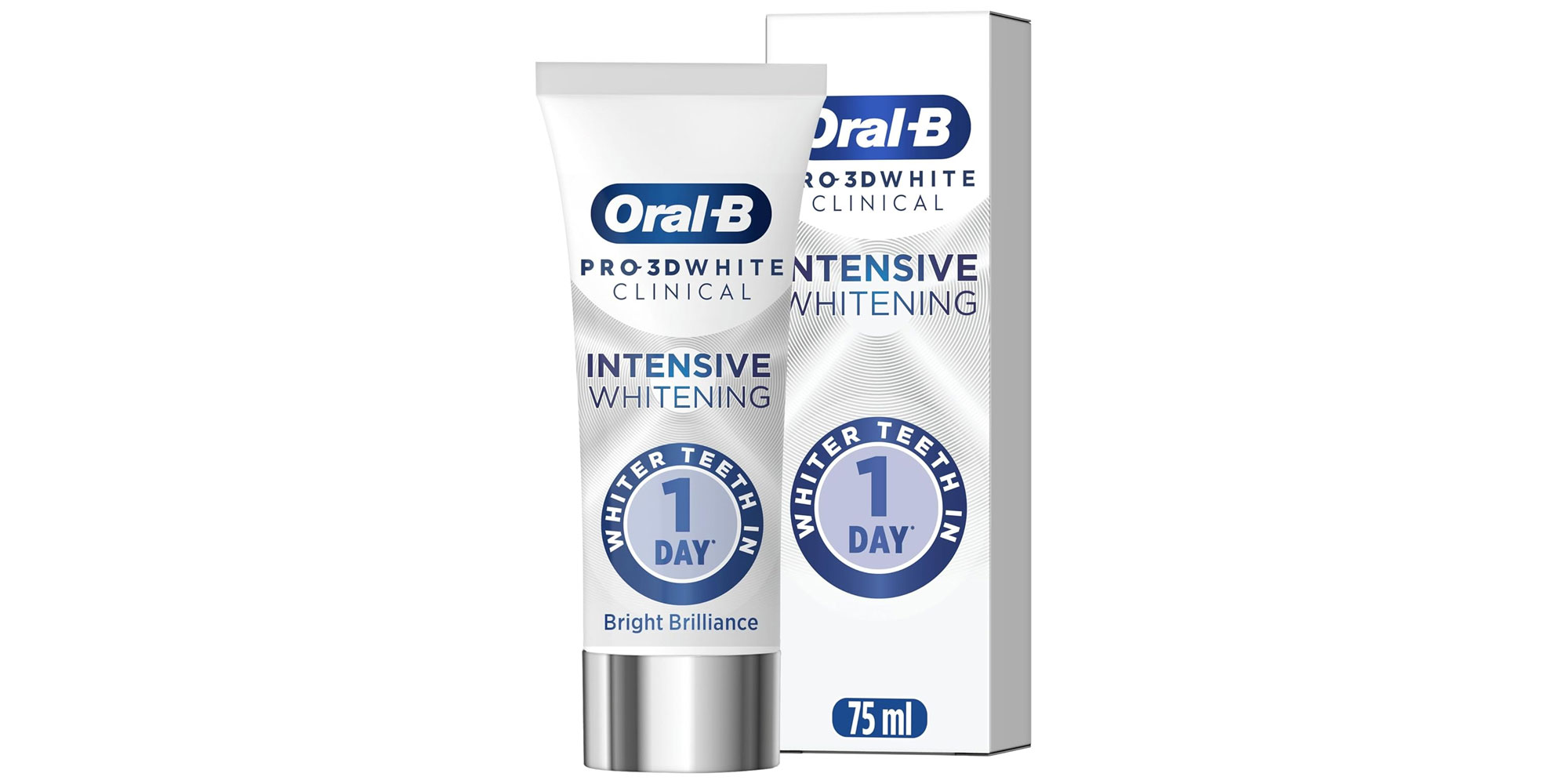
Need to know 75ml tube
Pearl Drops Strong Polished White Toothpaste
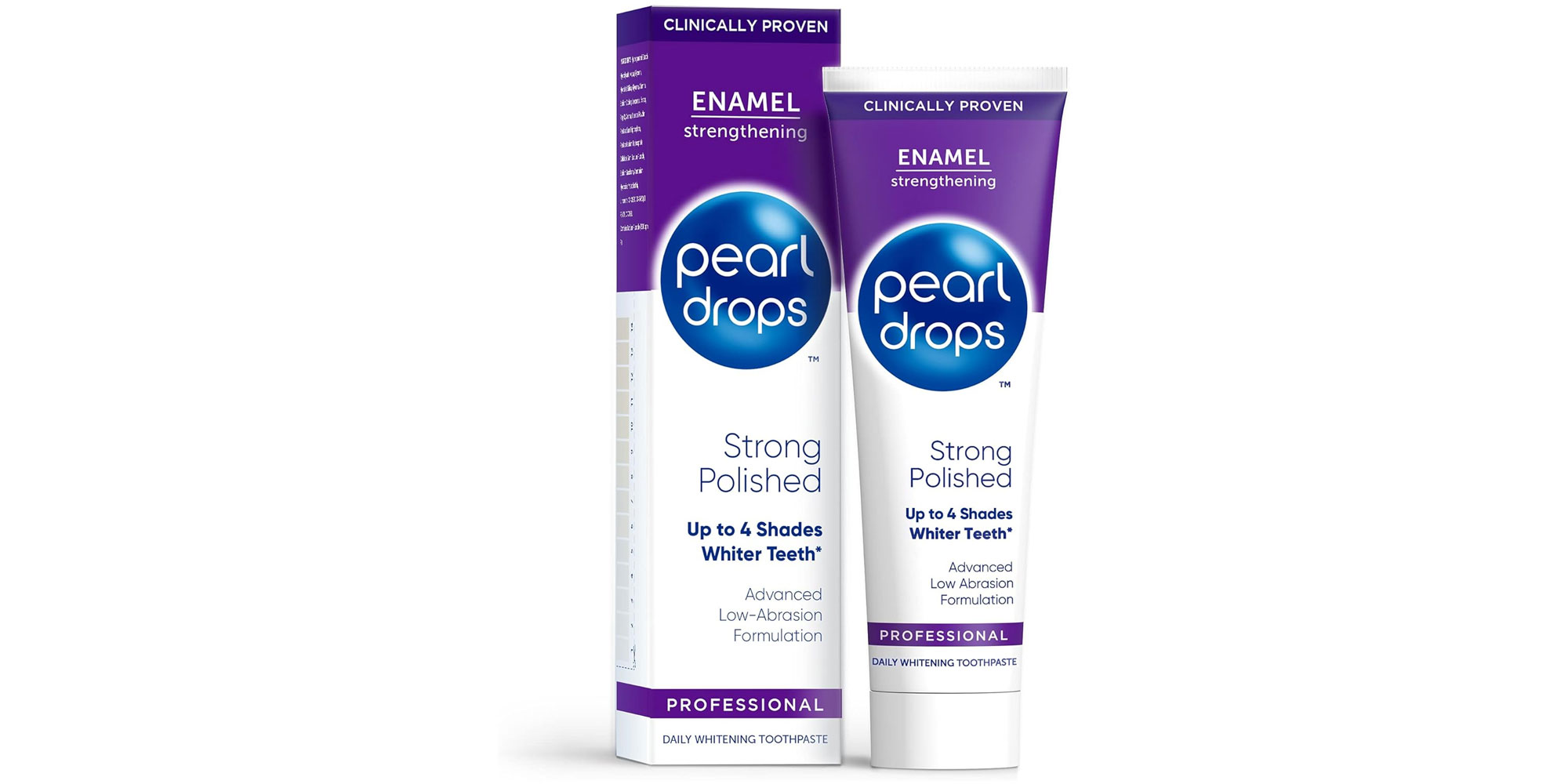
Need to know 75ml tube
Sensodyne Clinical White Enamel Strengthening Toothpaste
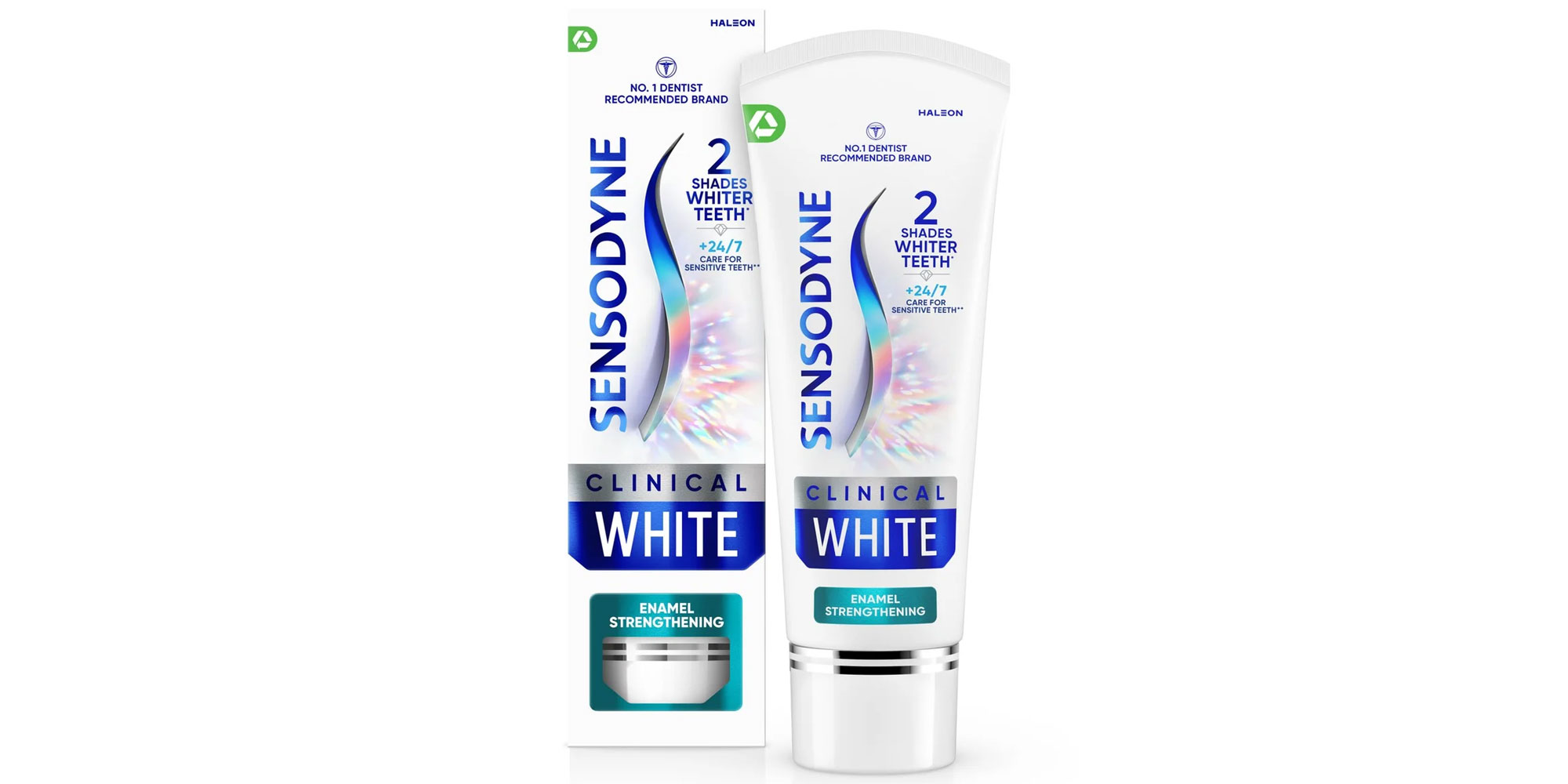
Need to know 75ml tube
How we test toothpastes
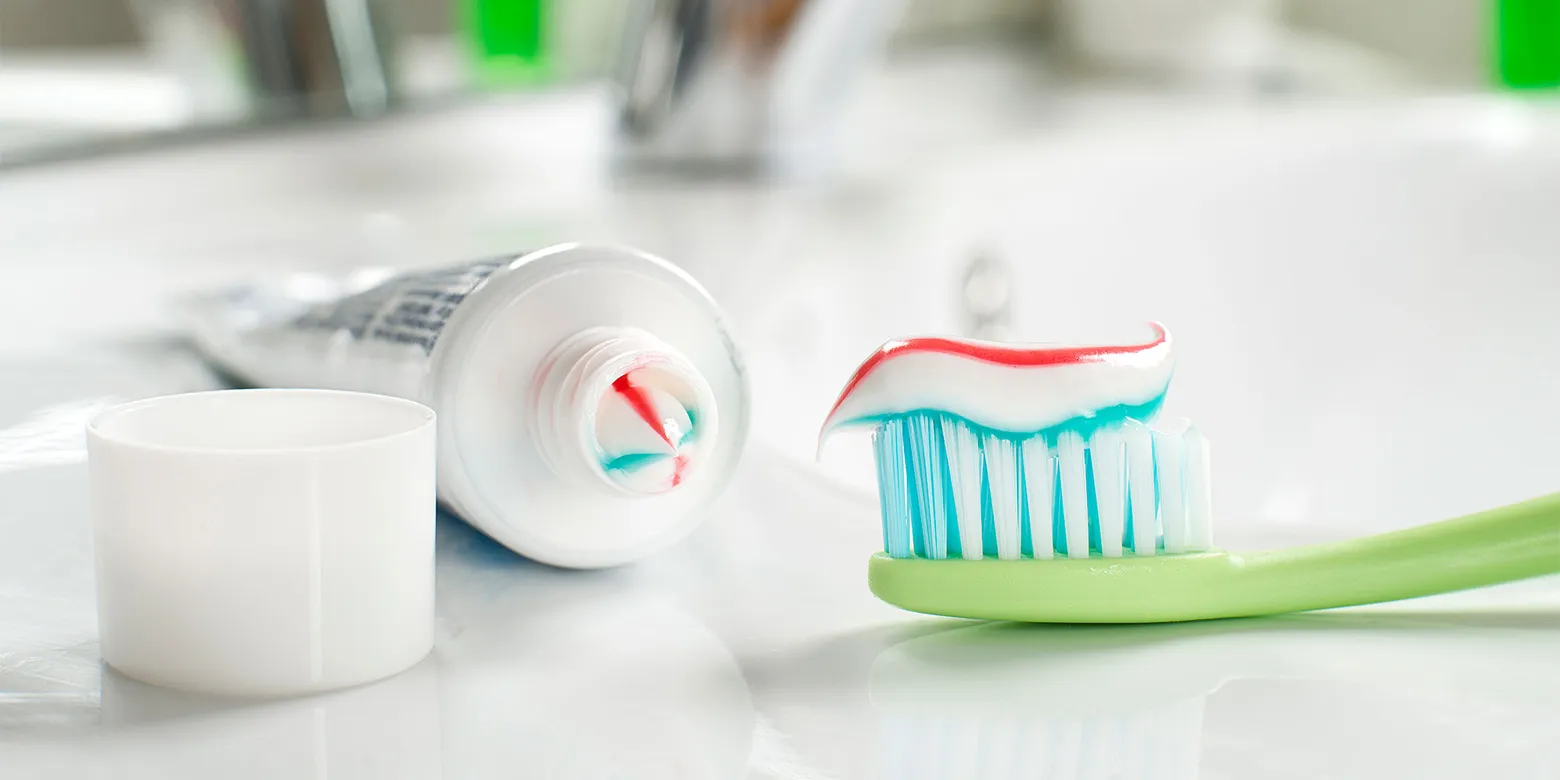
- How well does it clean? Each toothpaste is assessed on the abrasive ingredient's ability to physically remove extrinsic (surface) stains. This is done in the lab by measuring the stain removal effectiveness.
- How effectively does it whiten? Our lab experts use the colour system to objectively assess colour change in teeth. This includes looking for an increase in lightness in one assessment and a significant reduction in the yellow tint, which is the most critical factor for visible tooth whitening.
- What did our user panel think of using it? We also gather user feedback on each product. Each of the 30 panellists will tell us what they think of the flavour, texture, foaming, teeth cleanliness feeling and sensation in the mouth after brushing. We also ask them how easy the product is to remove from its packaging and whether they would buy it.
We regularly revisit the toothpastes on sale to see if there are any more popular models that need testing – and when we find them we do.
Find out more about how Which? is not influenced by product manufacturers or retailers and how your support helps us to stay editorially independent.
Expert view: Do whitening toothpastes work?

Dr Neal Rimmer, Which? senior scientific adviser
'There are two types of stains that affect your teeth: intrinsic and extrinsic. Intrinsic stains happen inside your teeth and can result from decay, trauma or changes in enamel and dentine (the hard tissue underneath enamel) with age.
'Intrinsic discoloration can be hard to remove with over-the-counter products and require dentist-administered professional products or procedures. Extrinsic stains are caused by food, drink and tobacco, but can be addressed by toothpaste and regular cleaning.
'Whitening toothpastes work in two main ways: abrasive agents physically scrub away surface stains, while chemical agents break down stain molecules. We test how well each product both cleans and whitens teeth, and whether it does so without excessive wear to tooth tissues.
'In our test we found all toothpastes were able to improve the whiteness of teeth, but some performed better than others. Some were quite abrasive and can damage the surface of your teeth, negatively affecting enamel, exposing dentine and causing sensitivity.
'You may have heard the phrase ‘beauty is pain’, but a bright smile shouldn’t come at the cost of sensitive teeth.'
Can yellow teeth be white again?
Teeth naturally yellow as we age due to thinning enamel, but this can also be caused by trauma to the tooth, certain medical treatments or excessive childhood fluoride consumption (which is rare in the UK).
The only way to remove intrinsic staining is professional bleaching via a dental professional, but there are several ways to combat extrinsic stains – the surface stains on your teeth typically caused by smoking, or drinking tea, coffee or red wine. These respond well to brushing with whitening toothpaste.
We've tested pastes and gels. Paste offers a thicker, more abrasive texture for stain removal, while gel is smoother and gentler - ideal for sensitivity. Both clean well, so pick what feels best to you.
Why do dentists say not to use whitening toothpaste?
Whitening toothpastes generally contain abrasives that could be damaging to your tooth enamel, which is why choosing a gentle formula is so important.
Toothpastes are scored on their abrasiveness using the Relative Dentin Abrasivity (RDA) scale, which was developed by the American Dental Association (ADA). The upper limit of an RDA score is 250; anything above 101 is considered highly abrasive, and scores between 151 and 250 are extremely abrasive and 'regarded as a harmful limit'.
Most toothpastes on sale in the UK (and all the ones we tested above) are clinically proven to fall safely below the threshold. However, products from online marketplaces could exceed this, so make sure you do your research.
For more information, take a look at our investigation into teeth-whitening products from online marketplaces.
Is it OK to use whitening toothpaste every day?
As long as your teeth and gums are healthy, using a whitening toothpaste daily that specifies it is appropriate for everyday use is not an issue.
However, it's advisable to choose a gentle, enamel-safe option, so check the ingredients and instructions before you buy to ensure the formula works for your teeth.
Fluoride: what you need to know
Fluoride strengthens tooth enamel, making it more resistant to decay. To maximise the benefits of fluoride, spit after brushing, but don’t rinse your mouth with water.
'Using fluoride toothpaste is advised due to its ability to prevent tooth decay', says Which? scientific adviser Dr Neal Rimmer. 'Tooth decay is caused by acid-producing bacteria that dissolve the minerals in tooth enamel, a process known as demineralisation.
'Fluoride gives toothpaste antibacterial properties as it gets inside bacteria and shuts down important enzymes, which stops them from growing.
'Fluoride also combines with calcium and phosphate on the tooth surface, to help rebuild enamel by forming strong fluorapatite crystals,' he says. 'These are tougher against acid than other minerals in your teeth, making enamel stronger and helping to prevent damage and decay.'
